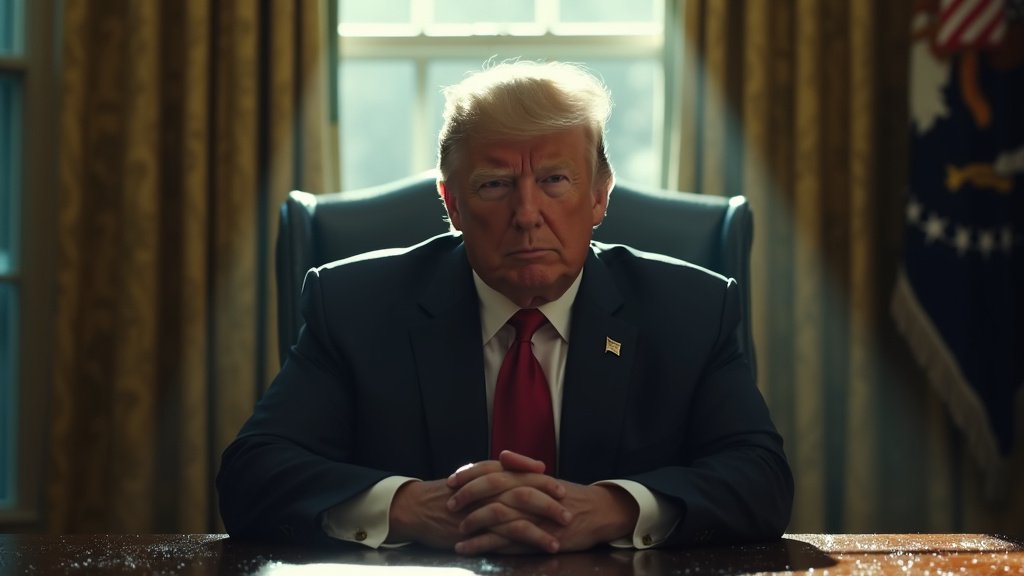Los Angeles, CA – Tensions escalated dramatically this week in Los Angeles as the Trump administration significantly increased federal military presence in the city, deploying U.S. Marines and doubling the National Guard contingent amidst persistent and fervent protests against recent Immigration and Customs Enforcement (ICE) raids.
The federal response follows a wave of ICE operations across Los Angeles that continued through Monday, June 9, prompting widespread public demonstrations. In a move that drew swift condemnation from state and local leaders, the administration announced it was dispatching approximately 700 U.S. Marines to the city. These forces, drawn from the nearby Camp Pendleton base, were anticipated to arrive by the evening of Tuesday, June 10.
This deployment of Marines supplements an already substantial National Guard presence. An initial deployment of 2,000 National Guard personnel had previously been sent to Los Angeles. The new directive effectively doubles that force, bringing the total National Guard presence in the city to 4,000 troops.
State and Local Officials Condemn Federal Action
The federal government’s decision to deploy both National Guard and Marine forces met immediate legal challenge and sharp criticism from California officials. The State of California filed a lawsuit against the Trump administration in response to the deployments.
California Governor Gavin Newsom strongly denounced the action, labeling it a “blatant abuse of power.” His sentiment was echoed by Los Angeles Mayor Karen Bass, who accused the Trump administration of deliberately attempting to foment chaos in the city.
Mayor Bass characterized Los Angeles as potentially being used as a “test case” for the imposition of authoritarian rule, asserting that the unrest originated in Washington, D.C. She reiterated calls for the ICE raids targeting residents to cease.
California Attorney General Rob Bonta is leading the legal challenges brought by the state against the Trump administration regarding the deployments.
Union Leader Arrest and Release
Amidst the protests and escalating federal presence, a notable development occurred involving a prominent labor figure. David Huerta, who serves as the head of the Service Employees International Union (SEIU) in California, was released on bond on Monday, June 9. Huerta had been arrested by ICE agents on the preceding Friday.
According to reports, Huerta was charged with “conspiring to impede an officer.” His arrest and subsequent release added another layer of tension to the already charged atmosphere surrounding the immigration enforcement activities.
Congressmembers Report Blocked Access to Facilities
The weekend also saw several Democratic members of Congress report being obstructed from conducting safety inspections at ICE detention facilities. Among those who stated they were denied entry were California Congressmember Maxine Waters and New York Congressmembers Nydia Velázquez and Adriano Espaillat.
The alleged denial of access prevented the lawmakers from carrying out oversight duties intended to assess conditions within the detention centers.
Advocates for detainees have concurrently raised concerns regarding conditions in facilities, specifically citing the Manhattan ICE facility located at 26 Federal Plaza. Reports from these advocates claim that the facility is suffering from severe overcrowding, with some detainees allegedly being forced to sleep on bathroom floors due to the lack of adequate space.
Looking Ahead
The arrival of the additional 700 Marines is expected to further intensify the federal footprint in Los Angeles. The presence of 4,000 National Guard troops, combined with the newly deployed Marines, represents a significant military mobilization within a major American city in response to civilian protests.
The legal battle initiated by the State of California against the administration’s deployment decisions is anticipated to proceed, highlighting the constitutional and jurisdictional questions raised by using federal military forces in this capacity.
As protests continue and the federal presence grows, Los Angeles remains a focal point for the national debate over immigration enforcement policy, the scope of federal authority, and the right to protest. The situation underscores the deep divisions between the Trump administration’s approach to immigration control and the stance taken by state and local authorities in California.











